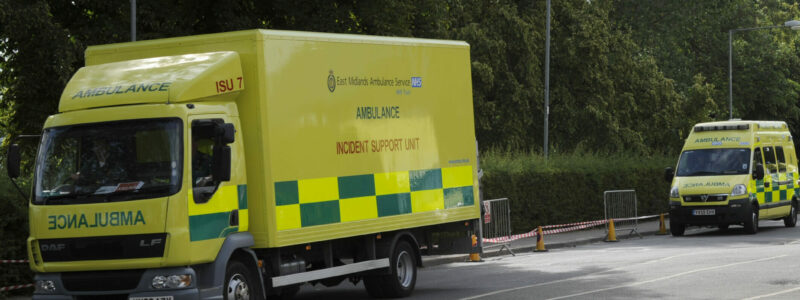Hazardous substance and radiation exposure

Serious incidents involving hazardous substances or radiation are rare, but if you do find yourself involved in one it is important to know what to do to protect yourself and others. Incidents with hazardous substances may take various forms, including vapours, powders or liquids.
Actions to take if you think you have been exposed to a hazardous substance
- The emergency services might ask you to take the following actions, you can take these actions before waiting for the emergency services to arrive.
- If you think someone else has been exposed to a hazardous substance, use caution and keep a safe distance to avoid exposure yourself.
- Follow the REMOVE REMOVE REMOVE advice if you think you have been deliberately or accidentally exposed to a hazardous substance, or if you think you have been attacked with an acidic or corrosive substance.
REMOVE yourself from the hazard to avoid further exposure.
- If the skin is itchy or painful, find a water source. This is essential to remove as much substance from the skin as possible and reduce further harm.
- Move away from the hazard as safely as you can. Do not delay.
- It is important for the safety of yourself and others that you continue to stay away from the hazard.
REMOVE outer clothing if affected by the substance.
- Remove outer clothing to reduce possible further contact with any trapped substance by up to 90%.
- Be very careful not to touch or spread the substance as this could lead to further injuries to the affected person or those helping them.
- Use gloves or other protective materials to cover hands and, if possible, carefully cut away clothing such as T-shirts, rather than pulling them off over the head.
- By avoiding clothing coming into contact with the face, it reduces the risk of the substance getting into eyes, mouth and nose.
- Do not pull off any clothing stuck to the skin as it may damage that skin. A trained medical professional will remove them when safe to do so.
- The discarded clothing may present a hazard to anyone nearby as it may be covered in or have absorbed the substance and may give off harmful fumes or particles.
- Do not smoke, eat or drink.
REMOVE the substance from skin if affected.
- If the substance is not painful or itchy, remove the substance using a dry absorbent material to brush it off or soak it up.
- If the substance is painful or itchy, do not wipe the skin as this may spread contamination or cause further harm. Rinse the affected area continuously with clean water as soon as possible to remove any residual substance. Try to make sure the water can run from the affected area without pooling on the skin and potentially spreading the substance to a wider area.
If you are outside and are alerted to a chemical emergency nearby then you should shelter – go in, stay in, tune in. Emergency services will update on which areas should shelter and for what duration. The distance from the release and direction affected may change over time.
The UK Health Security Agency guidance on what to do in a chemical emergency also provides information related to evacuations, pets, food and water, and information on specific hazardous chemicals.
Actions to take if you are involved in a radiation emergency
Follow the Go in, Stay in, Tune in advice from the UK Health Security Agency:
- Go in: The most important thing to do if you are told you are near a radiation emergency is go indoors as soon as you can and stay there. Close the doors and windows and stay as far away from external walls as possible.
- Stay in: Staying indoors reduces your exposure to any radiation outside. You will be given advice on what to do next. Turn off all fans and air conditioning and close all external doors, windows and vents where possible. You will be given advice on what to do next. You may need to stay indoors for one to two days.
- Tune in: Monitor the news and follow official advice on GOV.UK for what to do next. Any changes to advice will be communicated to you via official sources – this may be via the radio, television, internet, social media or the police.
What you need to do to protect yourself will depend on where you are in relation to where the radiation emergency is, so it is essential to follow the advice provided where you are. Radiation cannot be seen, heard, smelt, tasted or felt, so it is important that you follow the advice given to you, even if you can’t tell that anything has happened.
- You might be asked to decontaminate (clean) yourself. Advice on how to safely remove radioactive material from your skin and clothes (self-decontaminate) is provided by the UK Health Security Agency.
- The UK Health Security Agency guidance on what to do in a radiation emergency also provides information related to evacuations, pets, use of stable iodine and safety advice related to food and water.